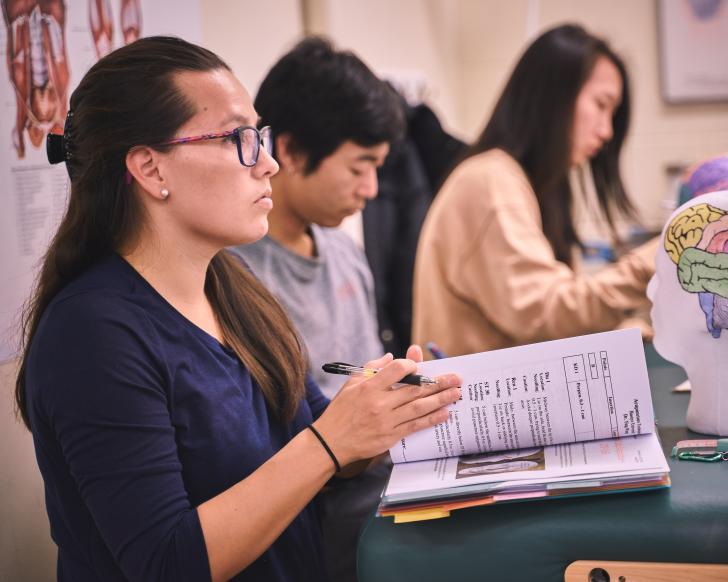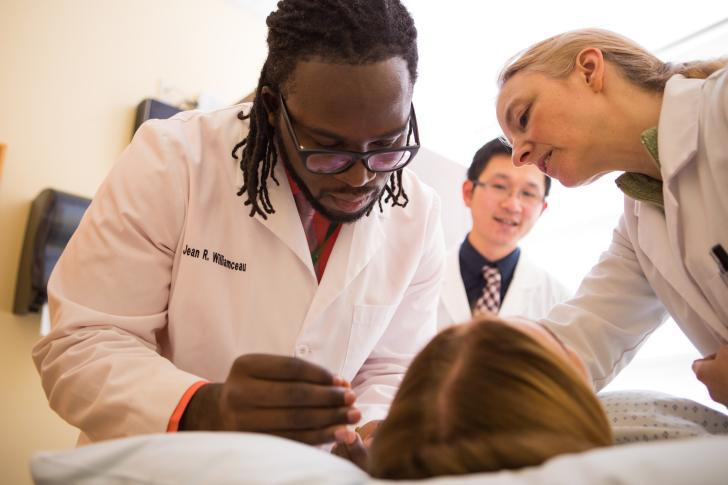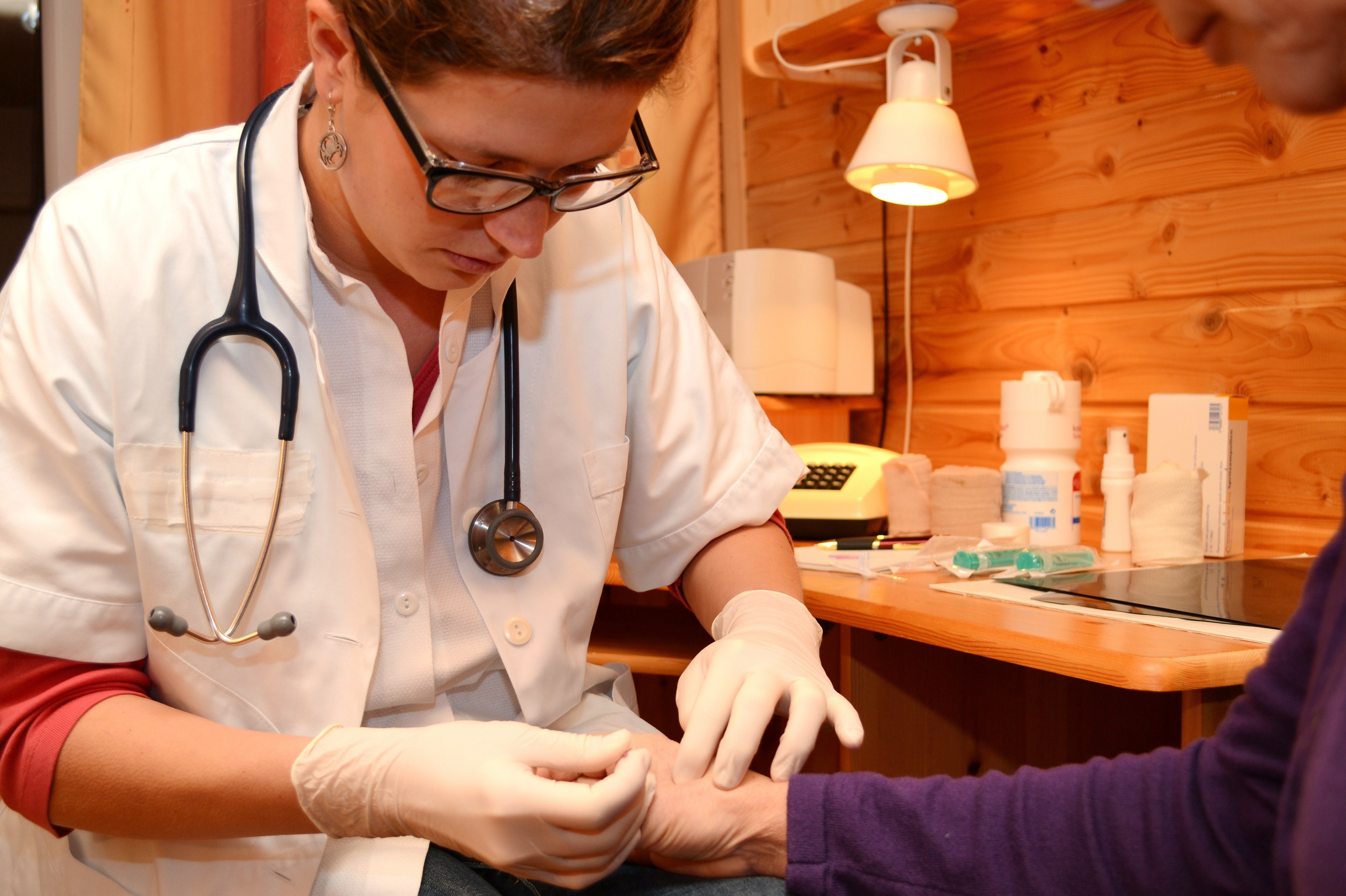Acupuncture is a time-honored healing practice that has gained popularity in recent years for its effectiveness in treating a variety of health conditions. As a result, the demand for qualified acupuncturists has increased, leading to a growing number of acupuncture schools nationwide.
However, not all acupuncture programs are created equal. When it comes to choosing where to study acupuncture, making an informed decision is crucial to a successful career in holistic healing.
Here are a few things to consider as you look for an acupuncture school:

1. Accreditation
Acupuncture schools in the United States are accredited by the Accreditation Commission for Acupuncture and Oriental Medicine (ACAOM). ACAOM is recognized by the U.S. Department of Education as a specialized accrediting agency for acupuncture and Oriental medicine.
It is important to confirm any acupuncture schools you consider are accredited, which ensures that a school meets established standards of academic excellence and educational quality.
Accredited acupuncture schools ensure that graduates of the program meet the qualifications necessary to sit for licensing exams and to practice acupuncture in their state. Graduates from unaccredited programs, on the other hand, may not meet the qualifications necessary to sit for licensing exams in their state, which can limit their career opportunities.
Additionally, unaccredited programs may not offer the same level of educational quality, leaving students ill-prepared for their future careers.
By selecting an accredited program, you can be assured that you’re getting a high-quality education that will prepare you for a successful career in acupuncture.

2. Curriculum
The curriculum of an acupuncture program is one of the most important factors to consider when choosing a school. A well-rounded and comprehensive curriculum is paramount to acquiring the necessary skills and knowledge to become a successful acupuncturist.
The curriculum should cover a range of topics, including the theory and practice of acupuncture, biomedical sciences, patient assessment, diagnosis, and treatment planning. Additionally, a science-based curriculum can ensure you have a deep understanding of human anatomy, physiology, and pathology, which can help you work effectively with other healthcare professionals in a collaborative environment.
Some states in the US require herbal medicine as part of the curriculum for licensure as an acupuncturist. For example, California requires students to complete a certain number of hours of herbal education and pass an herbal exam as part of their licensing requirements.
Prospective students should research the requirements for licensure in their state and ensure that the acupuncture program they choose meets those requirements. Even if herbal medicine is not required for licensure, it can be beneficial for acupuncturists to be familiar with herbal sciences to complement their acupuncture treatments.

3. Faculty
Faculty play a critical role in an acupuncture student's education and overall experience at a school. They’re responsible for providing the knowledge, guidance, and support as you progress through the program.
Faculty in a worthwhile school will have academic qualifications and practical experience. Look for faculty members who have spent time practicing acupuncture in clinical settings. They should be able to provide insights and perspectives from practical experience, which can be difficult to learn from textbooks.
.jpg?width=728&height=485&name=RS4407_BL8I8586%20(1).jpg)
4. Clinical Experience
Clinical experience is an essential part of any acupuncture graduate program. It provides students with hands-on training and the opportunity to apply their knowledge in real-world settings under the supervision of experienced practitioners. It’s also required by state licensing boards for acupuncturists.
In addition to practical training, clinical experience also exposes you to a variety of patient populations, conditions, and treatment settings. This exposure can broaden your understanding of acupuncture and prepare you for the diverse needs of your future patients.
It also allows you to develop relationships with patients, providing a deeper understanding of their experiences and needs. As such you’ll gain confidence in your skills and develop your own approach to acupuncture and patient care.
.jpg?width=512&height=341&name=unnamed%20(10).jpg)
4. Location
A school's location and available resources are also important factors to consider when selecting an acupuncture program. The school's location can affect the type of patients you’ll see during your clinical training, and can play a role in job opportunities after graduation. Additionally, the resources available, like research opportunities, access to a teaching clinic, and support services can greatly impact your education and future career.
When considering a school's location, it's important to think about the type of patient population you'd like to work with. For example, if you're interested in working with a diverse patient population, you may want to consider schools in more urban areas with a significant immigrant or refugee population. On the other hand, if you prefer working with a more rural patient population, you may want to consider schools in more remote areas.
Start your career in holistic healing at Bastyr
Choosing the right school for a graduate degree in acupuncture is crucial to your success as a practitioner. At Bastyr University, we offer a rigorous and well-rounded curriculum, experienced faculty, and extensive clinical experience opportunities. We believe that our commitment to excellence makes us the best choice for your education. Download our Guide to Graduate Degrees in Acupuncture to learn more about becoming an acupuncturist.
